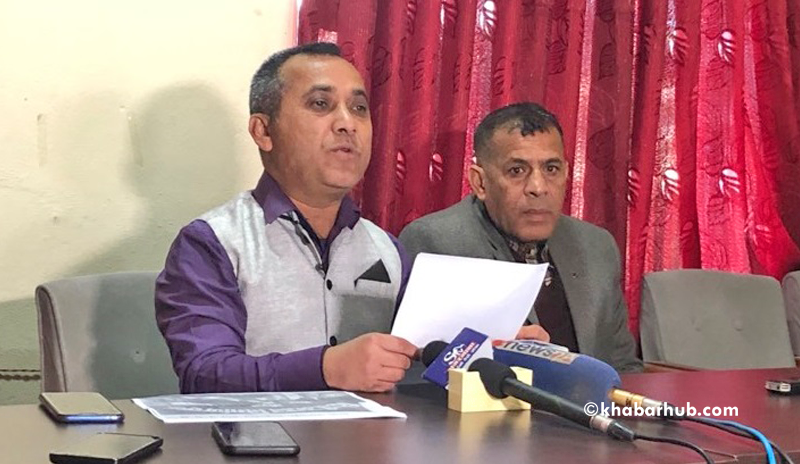0%

Nepali Congress General Secretary, Bishwa Prakash Sharma (L) speaking at a program/File Photo
KATHMANDU: Nepali Congress (NC) General Secretary, Bishwa Prakash Sharma, has cautioned that the parties within the five-party alliance must refrain from pursuing independent activities, raising concerns over potential crises.
In the political report crafted for the upcoming Mahasamiti meeting scheduled to commence on February 19, Sharma highlighted the delicate state of the ruling coalition, emphasizing the imperative need for transparency and open communication among its members.
Sharma’s remarks were made in response to accusations from other alliance parties, particularly regarding the recently-held National Assembly elections in the Koshi province, where the Nepali Congress faced criticism.
Reflecting on the political events, Sharma noted, “When the government was last formed in Koshi province and the Maoist Center’s candidate was defeated in the National Assembly election, the coalition party (Maoist Center) expressed dissatisfaction with us.”
Expressing concern about the sustainability of the Nepali Congress-Maoist Center government’s proclaimed five-year tenure, Sharma warned against concealing alliance problems.
He underscored the potential for issues to escalate and jeopardize the future of the coalition if not addressed promptly.
“While harboring the expectation, decision, and desire for the coalition government to endure for five years, we cannot ignore the reality that this can only be achieved through open discussion and mutual trust, rather than masking the problems,” Sharma stated.
Sharma submitted a comprehensive 19-page contemporary political proposal during the Central Working Committee meeting for review before its presentation in the Mahasamiti meeting.
The proposal covers seven critical topics, including democracy alternatives, alliances, government participation, good governance in Nepal, citizens’ dissatisfaction, shared political responsibility, and an understanding of the psychology of Nepali society to be addressed through cooperative political efforts.